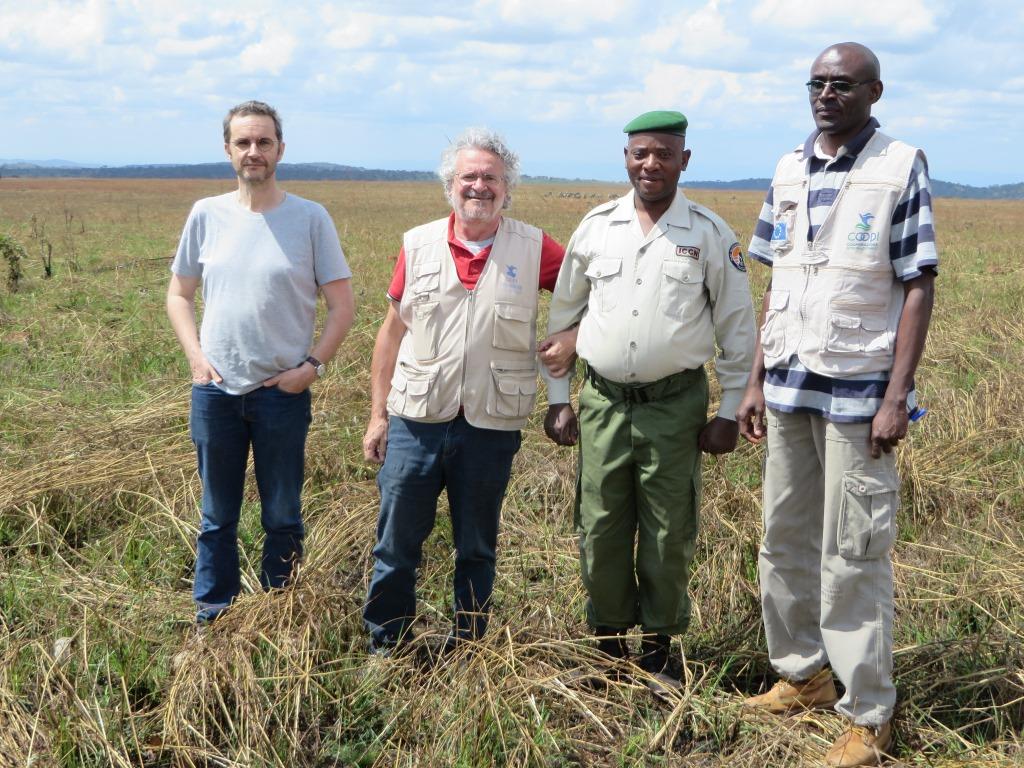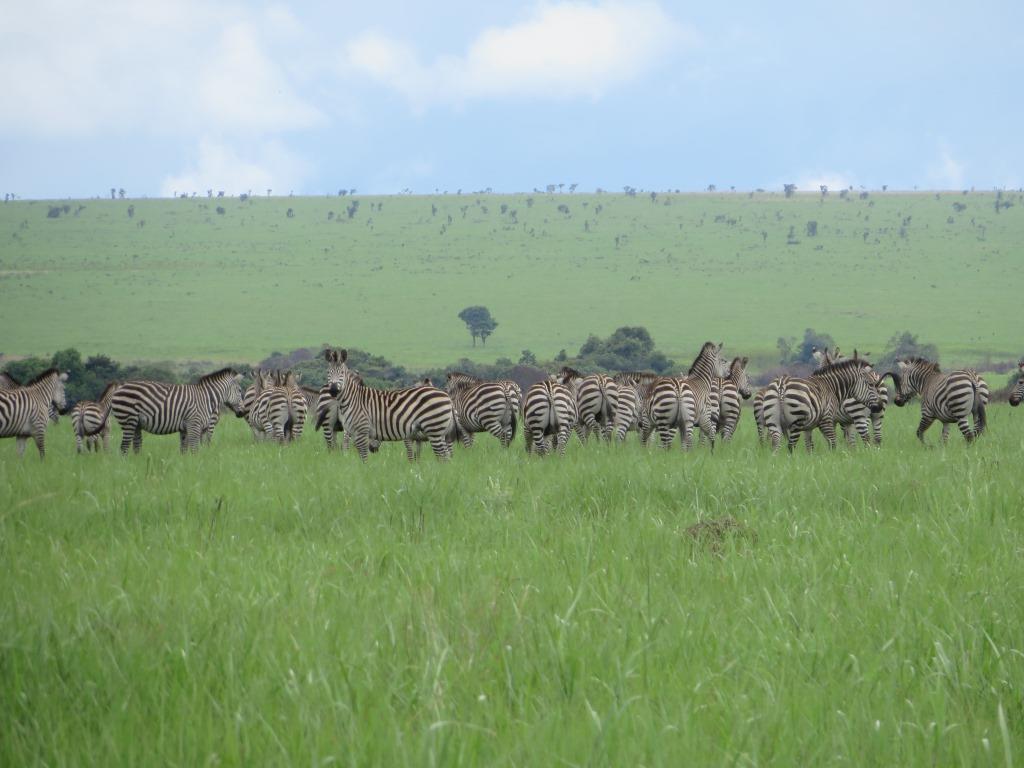28-05-2020 | di COOPI
DRC, environmental protection and food security for sustainable growth
In the Democratic Republic of the Congo, long years of conflicts threatened not only the community’s survival, but also altered the natural ecosystems of the Upemba National Park. To guarantee the park’s protection, COOPI is implementing the European Union funded project “Food security and nutrition for the population living near the Upemba National Park (PNU) in the territories of Mitwaba and Malemba N'Kulu” since 2017.
To support the 20 villages situated nearby the park and intending to protect the natural environment, COOPI distributed seeds, animals and fish farming kits to rear Tilapia Nilotica. Moreover, it organized cultural events in schools, radio broadcastings in the villages and door-to-door awareness to mobilize the rural communities on environmental protection and sustainable management of natural resources.
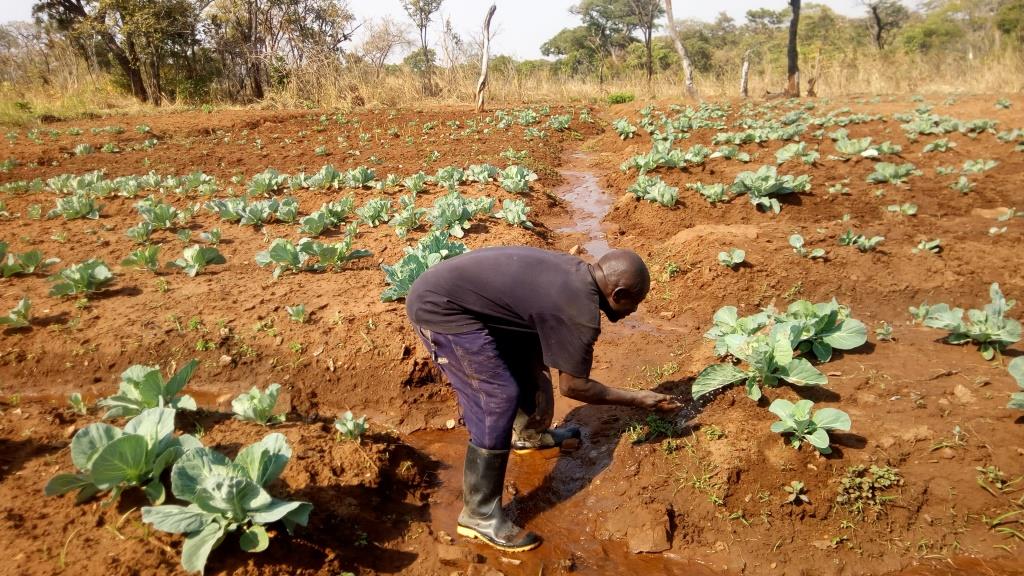
Agricultural field in Kisangi
Thanks to the collaboration with nine Community Conservation Committees, coordinated by the Congolese Institute for the Conservation of Nature of the National Park in partnership with COOPI, all activities were organised in the following villages: Kyubo, Kalera, Manzombwe, Kasenga, Lukobwe, Mumbolo, Mizi e Kisandi. The Community Conservation Committees’ foundation favoured the creation of new temporary jobs for its members, encouraging them in investing their incomes in the Savings and Loans Village Associations and to use their funds in new income-generating activities (small businesses, agriculture etc.) to offer an alternative to hoarding the resources of the national park.
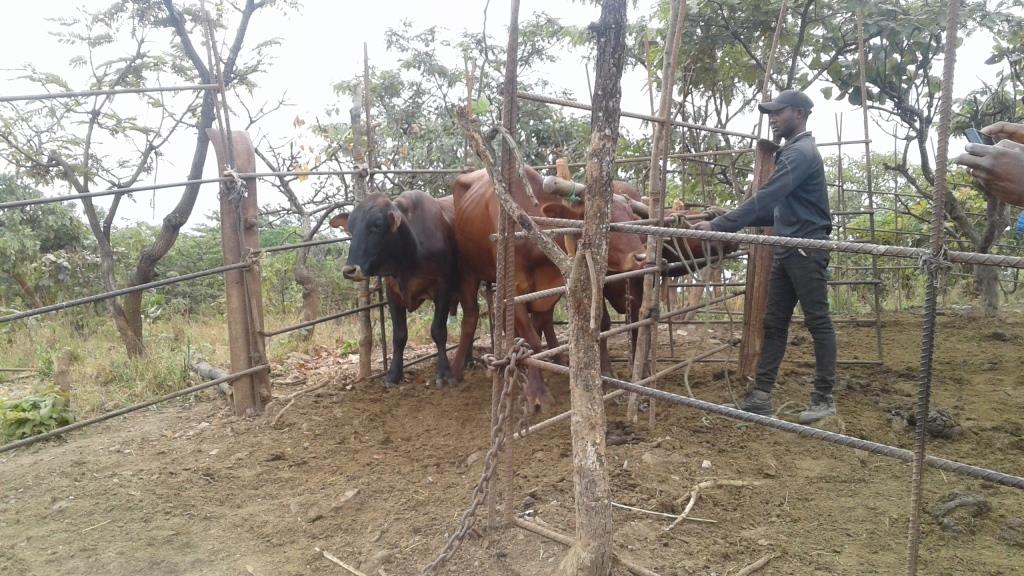
Breeding in Kasungeshi
Beyond encouraging rural people in valorising their natural local capital, the project rehabilitated 15km of the access’ road to the park. The rehabilitation of the road, whose already poor conditions were worsened by recent climatic shocks, was implemented thanks to the active collaboration with local people. Indeed, communities benefitted from this intervention getting new temporary jobs and more environmentally sustainable ones (alternative to a more common mineral extraction). Moreover, the chief of the National Park, colonel Rodrigue Mugaruka Katembo, expressed that the road’s rehabilitation bettered the access to the park as well, giving the chance to the guards of the Congolese Institute for the Conservation of Nature of the National Park to protect the park against poaching and allowing local people to transport agricultural products to the markets.
COOPI staff with the chief of the National Park
Therefore, thanks to these activities, it was possible to offer a more sustainable economic growth for the villages and to ensure an improvement in the conditions of the flora and fauna of the park (for example, the number of zebras increased from 64 in 2017 to 99 in 2020). This shows not only that environmental sustainability and economic progress can coexist, but also that the first one is the precondition for the second one. A healthy and sustainable environment – even if undervalued – is essential to guarantee the right to life, food, adequate livelihood, mental and physical health and a dignified job. Indeed, COOPI approach in connecting food security and environment protection is successful in guaranteeing human rights and good prospects for economic and sustainable development.
Upemba National Park
In the latest years, Republic Democratic of Congo’s people lacked livelihoods (agriculture, breeding, small business etc.). Thus, local communities started using the National Park resources to meet their basic needs. Activities such as poaching, wild vegetable picking, illegal mineral extraction (mostly cassiterite raw material for the extraction of tin and in smaller quantities of gold), the cutting down of trees to obtain firewood and charcoal for domestic use, and the informal occupation of some protected wilderness areas increased the pressure on the National Park to the point of altering the balance of flora and fauna.
Photo credits: Vincenzo Altomare
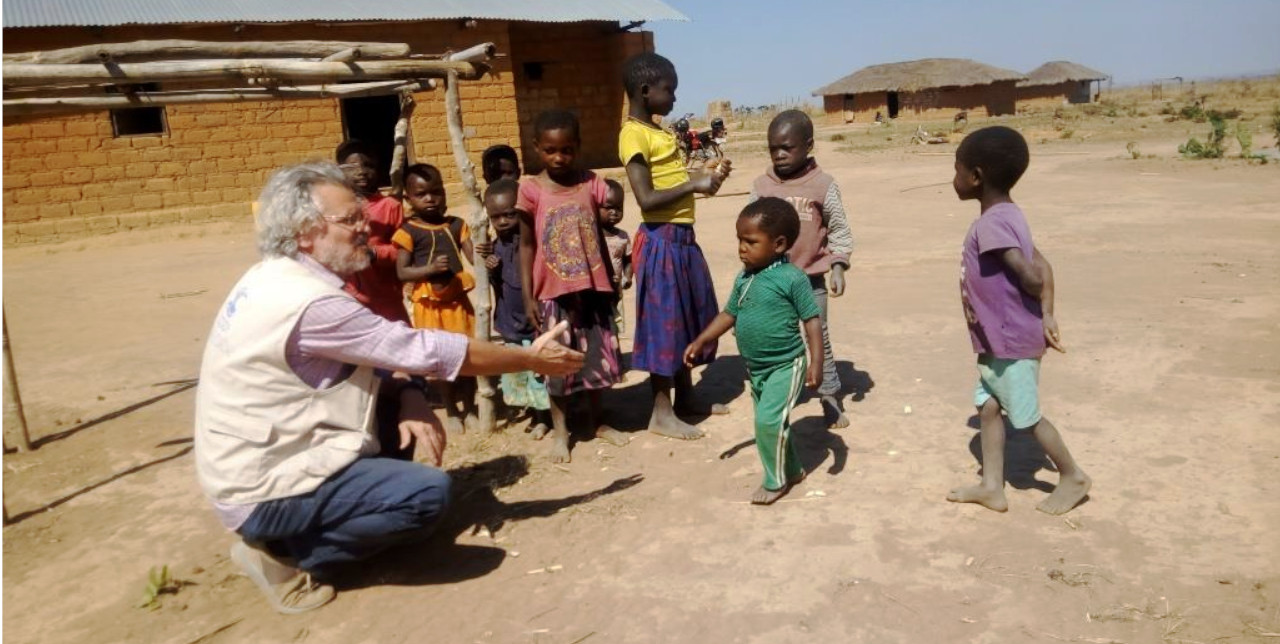



 Dem. Rep. of Congo
Dem. Rep. of Congo
